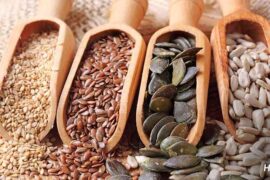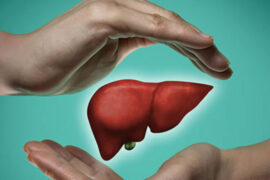On World Autism Awareness Day 2024, it’s crucial to recognize Autism Spectrum Disorder (ASD) as a developmental disorder that can significantly impact various aspects of children’s lives, including communication, social skills, cognitive function, and learning ability. Children with autism may exhibit repetitive behaviors and have intense interests in specific topics, which can influence their eating habits and lead to nutritional deficiencies, eating disorders, and digestive issues.
Therefore, it’s essential to ensure that they receive a balanced diet tailored to their needs to support their overall development and cognitive function. Additionally, certain foods can help autistic children better manage their moods and behaviors, highlighting the importance of nutrition in managing the symptoms of ASD and promoting the well-being of affected individuals. On this day, let’s raise awareness and support initiatives aimed at providing appropriate nutritional support and resources for children with autism to thrive and reach their full potential.
Autism encompasses a spectrum of conditions that can affect the nervous system, leading to diverse impacts on cognitive, emotional, social, and physical health. The symptoms of autism can vary widely in range and severity, as each individual’s experience with the condition is unique. However, common symptoms include challenges with communication, such as difficulty in understanding and using language effectively, as well as struggles with social interactions, including difficulty in recognizing and responding to social cues. Additionally, individuals with autism may exhibit obsessive interests in specific topics and engage in repetitive behaviors, such as repetitive movements or insistence on sameness in routines.
Role of nutrition in autism:
Proper nutrition is vital for the overall health and well-being of children, including those with autism spectrum disorder (ASD). However, children with ASD often face numerous challenges related to nutrition, such as food allergies, intolerances, metabolic disorders, and gastrointestinal issues, which can severely impede their dietary intake and nutritional status. Additionally, issues like eating disorders, picky eating, food obsessions, and refusal to eat further complicate nutrition management for these children. Despite these challenges, a well-balanced diet is crucial for supporting their overall health and may also contribute to improvements in behavior, speech, and cognitive function.
In fact, diet interventions have been proposed as a therapeutic approach for managing ASD symptoms, with approximately one-third of children receiving treatment at the time of ASD diagnosis having undergone some form of food intervention. Therefore, addressing nutritional needs and implementing appropriate dietary strategies are essential components of comprehensive care for children with ASD, aiming to optimize their health outcomes and quality of life.
Ideal Foods for autism:
Recent research suggests that certain dietary interventions may have beneficial effects for individuals with autism spectrum disorder (ASD). For example, incorporating foods rich in curcumin, probiotics, and following a gluten-free/casein-free or ketogenic diet may help reduce agitation and improve symptoms. Additionally, including fermentable foods in the diet may be beneficial. Conversely, consumption of sugar, chemicals, pesticides, genetically modified organisms (GMOs), inorganic processed foods, and difficult-to-digest starches may exacerbate symptoms in individuals with ASD.
While other dietary approaches such as the FODMAP diet, elimination diets, or specific carbohydrate diets have shown some promise in improving symptoms, evidence supporting their effectiveness as therapeutic measures remains limited. Therefore, it’s essential for individuals with ASD and their caregivers to work closely with healthcare professionals to explore and implement appropriate dietary interventions tailored to their specific needs and preferences.
Nutrition tips for children with autism:
Your nutrition tips for children with autism are comprehensive and provide valuable guidance for supporting their overall health and well-being. Here’s a summary of the key points:
- Focus on Whole, Nutrient-Dense Foods: Prioritize whole foods rich in essential nutrients to support brain function and mood regulation.
- Consider a Gluten-Free, Casein-Free Diet: Some children with autism may benefit from avoiding gluten and casein, as they can affect immunological pathways and neurological functions.
- Include Omega-3 Fatty Acids: Incorporate sources of omega-3 fatty acids, such as fish, flaxseeds, and chia seeds, to support brain development and improve symptoms like hyperactivity and concentration.
- Ensure Sufficient Vitamin D: Address potential vitamin D deficiency through dietary sources and outdoor activities, as it plays a role in immune function and mood regulation.
- Provide Magnesium-Rich Foods: Include foods like nuts, seeds, whole grains, and leafy green vegetables to support relaxation, sleep quality, and reduce anxiety in autistic children.
- Consider B Vitamin Supplementation: B vitamins, particularly B6 and B12, are essential for brain function and mood regulation. Incorporate foods rich in B vitamins such as poultry, eggs, dairy products, and fortified cereals.
- Include Zinc-Rich Foods: Zinc supports immune function, sensory processing, and behavior regulation. Offer foods like red meat, poultry, beans, and nuts to ensure adequate intake.
- Support Gut Health with Probiotics: Probiotics can help maintain a healthy gut microbiome, improve digestion, and support immune function. Include probiotic-rich foods like yogurt, curd, and kanji in the diet.
- Limit Processed Foods and Additives: Minimize processed foods, artificial colors, flavors, and preservatives, as they may exacerbate symptoms of ASD in some children.
By implementing these nutrition tips, parents and caregivers can provide a well-rounded diet that supports the unique needs of children with autism, promoting their overall health and well-being.
Disclaimer:
The information contained in this article is for educational and informational purposes only and is not intended as a health advice. We would ask you to consult a qualified professional or medical expert to gain additional knowledge before you choose to consume any product or perform any exercise.








